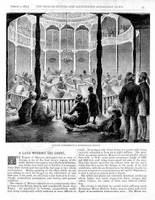In trying to keep up with my American traditions, we had 15 guests for Thanskgiving dinner. Now making a proper dinner with all the trimmings isn't all that easy. First of all: turkey. You can't get a decent one here. This is what it sounded like (translated, of course) when I called up a large supplier of meats (also turkey farm) to place an order ahead of time:
"Hi, I'd like to order a large turkey for the 25th."
"Sure, how big"
"Well, I'm thinking of about 25 pounds."
"Can't do. Our largest is about 15 pounds"
"But you have a turkey farm. Can't I order a larger one?"
"Nope."
"OK, I'll have to settle for two of your largest ones. Can you make them hens?"
"Hens?"
"You know girl birds. I don't want a tom turkey."
"Can't do. We only sell toms"
"What do you do with the hens?"
"Well, they don't get as big as fast, so we use them in other products. And no one asks about the gender, anyway"
Then there's cranberries. Swedes live in an area of Europe surrounded by vast stretches of cranberries, but not in Sweden. Here it's lingonberries you get. Cranberries are for the enjoyment of the Finns, the Estonians, the Norwegians, the Russians, but not the Swedes. So if you're lucky, you can buy a small bag of Ocean Spray frozen cranberries for $10.00.
And pumpkin. Same thing. Sweden is a pumpkin-infested country, but there are none to be had by the time Thanksgiving comes around. And yes, the day is saved by Gray's American Store that sells cans for $5.00 each.
Sweet potatoes. Up until a few years ago, they didn't exist. Now they do in some stores. Most people don't know what to do with them. Ah, the cultural loss they endure.
Stuffing. Nowadays you can get celery in most stores. This is real progress.
So we had 15 people. I baked for two days. One of my turkeys didn't turn out the way it was supposed to do, so being a true American I called the Butterball hotline and a nice woman with a motherly sounding Betty Crocker voice gave me the help I needed.
The day was saved.
























